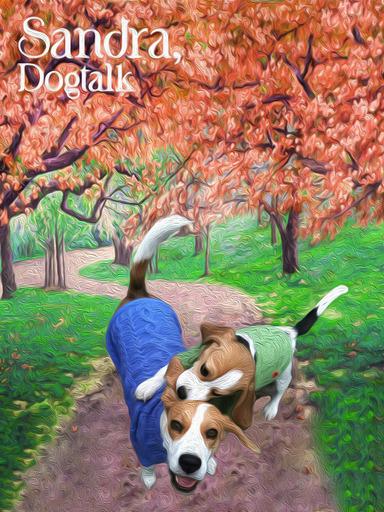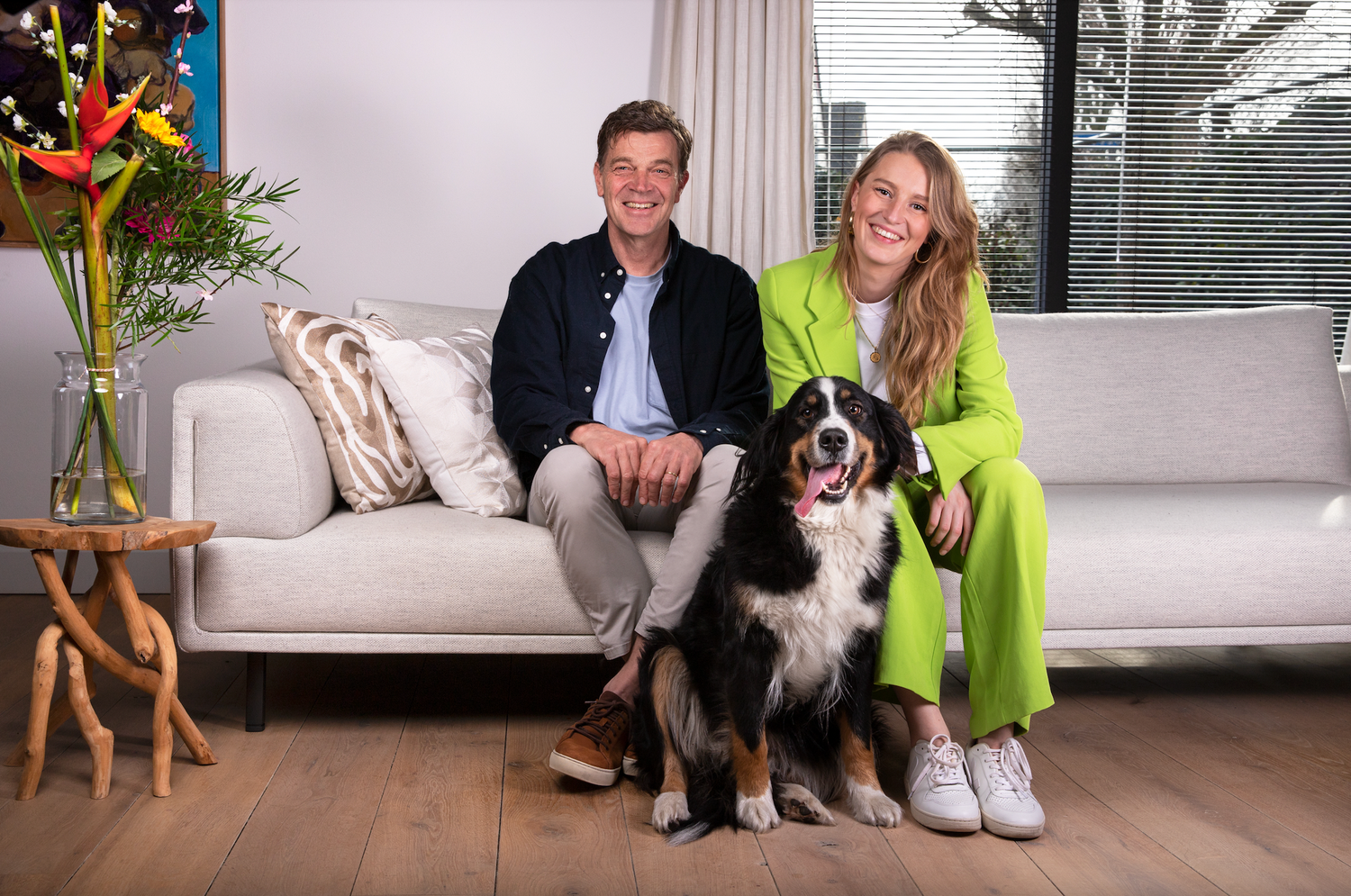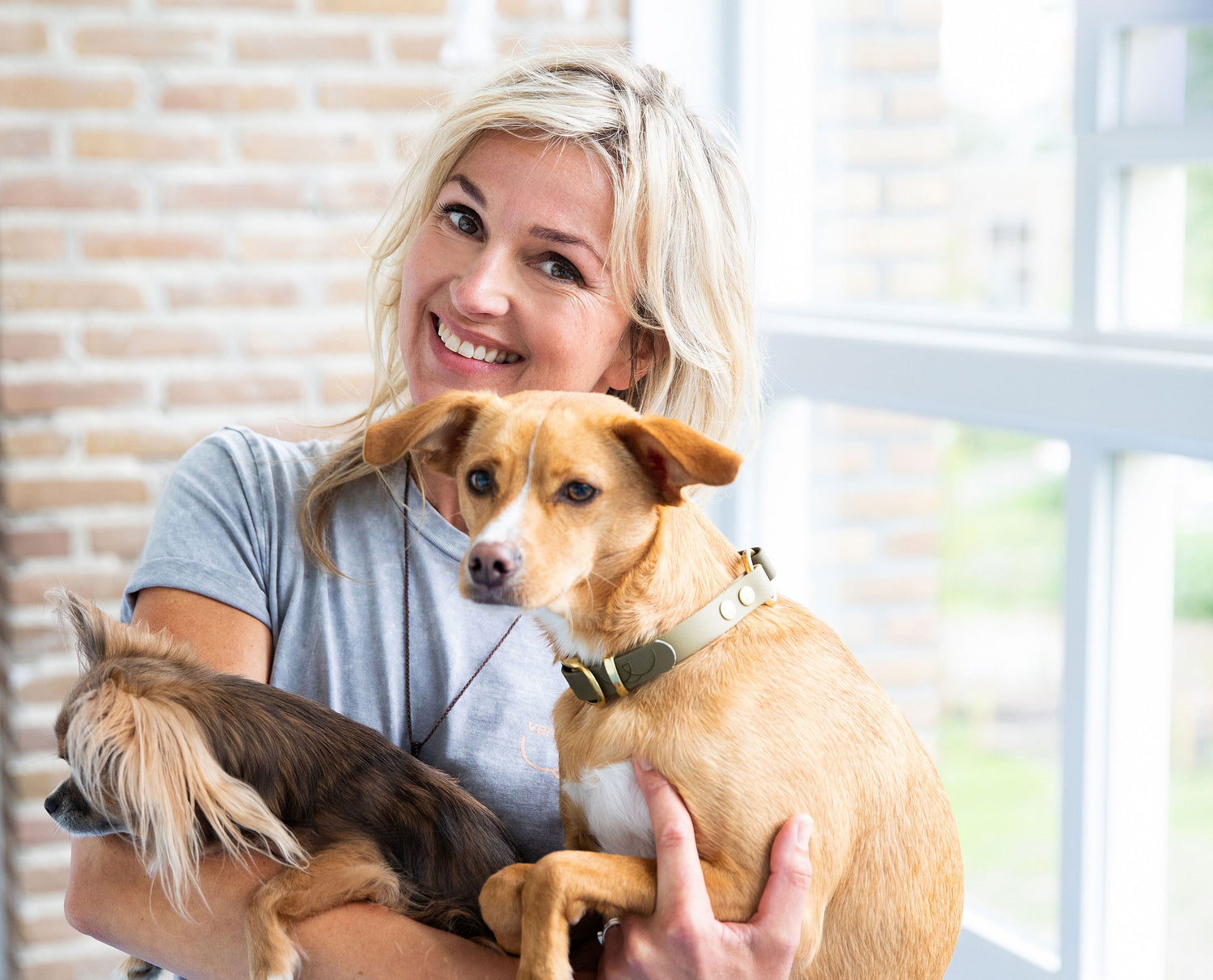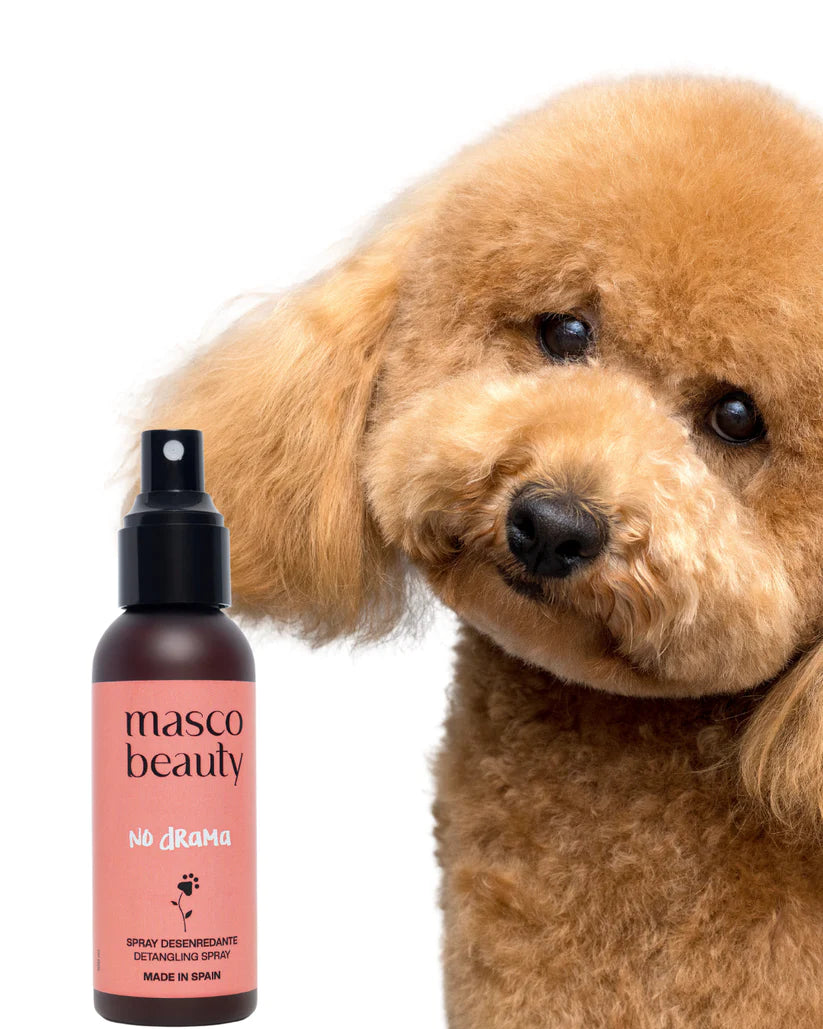Deze week stellen we graag Sandra aan u voor, de eigenaresse van Dogtalk en specialist in gedragstherapie voor honden. Sandra nam de tijd om met ons te praten, haar verhaal te delen en ons waardevolle tips te geven. Haar expertise ligt op het gebied van puppygedrag, dus als u onlangs een nieuwe puppy in huis heeft gehaald of van plan bent dit te doen, lees dan verder voor nuttige informatie.
V: Sandra, wat fijn je te zien. Zou je jezelf even aan onze lezers willen voorstellen?
A: Mijn naam is Sandra Mur-Bekaert en samen met mijn vrouw Sandra Bekaert heb ik een prachtig bedrijf: DogTalk: een grote hondenschool in het Amsterdamse Bos. We geven daar hondentraining en gedragsbegeleiding, bij mensen thuis en op locatie.
Wij wonen in Aalsmeer met onze 5 beagles en hebben regelmatig een nestje beagle pups die opgroeien in huiselijke kring. Wij fokken beagles onder de kennelnaam DogTalk Beagles.
V: We zijn erg geïnteresseerd in wat je doet. Je hebt een hondentrainingsbedrijf en bent zelfs gespecialiseerd gedragstherapeut! Kun je ons vertellen wat je doet? Hoe is dit begonnen?
A: Ik heb altijd een groot hart voor dieren gehad, ik wilde zelfs dierenarts worden. Helaas liep dat pad anders. Uiteindelijk heb ik een opleiding fysiotherapie en management afgerond en heb ik lange tijd in de gezondheids- en vrijetijdsbranche gewerkt. Totdat ik verliefd werd op mijn hondentrainer. En niet veel later besloot ik me om te scholen en flink te investeren in haar bedrijf. De rest is geschiedenis!
Naast (en misschien wel vooral) mijn werk als ondernemer, houd ik me nu dagelijks bezig met het trainen en begeleiden van honden en hun baasjes. We kijken naar de complete context, elk gezin en elke hond is anders.
We zijn ook betrokken bij de ontwikkeling van opleidingen en de inhoud van diverse keurmerken en accreditaties. En we zijn actief betrokken bij de branchevereniging. Omdat we geloven dat we door ons werkveld te verbeteren, het dierenwelzijn kunnen verbeteren.
V: Hoe bent u gedragstherapeut geworden?
A: Zoals ik al zei, ik werd verliefd op de hondentrainer (we zijn inmiddels al een aantal jaren getrouwd). Bovendien sloop de liefde voor dieren er nog steeds in en zag ik mooie kansen in haar bedrijf. Dat werd, na een omscholing tot instructeur en later gedragstherapeut, ons bedrijf.
Binnen ons bedrijf houd ik me voornamelijk bezig met het zakelijke/ontwikkelingsgedeelte, ik doe de puppytraining en de gedragsbegeleiding/therapie. Mijn vrouw en onze instructeurs verzorgen de vervolgtraining voor de oudere honden.
V: Wat vind je het leukst aan je werk?
A: Wij dragen actief bij aan het verbeteren van dierenwelzijn en daarmee ook aan het verbeteren van het welzijn van het gezin en het milieu.
Daarnaast kan ik nog steeds enorm genieten van de ontwikkeling die de (jonge) honden samen met hun gezin doormaken. Onder onze begeleiding worden ze echt een team! Dat blijft bijzonder om te zien.
Je bent gespecialiseerd in puppygedrag; dit is natuurlijk het moment waarop veel vragen bij mensen opkomen. We hebben een paar vragen die volgens ons vaak gesteld worden. Wat zijn jouw tips voor...
V: …Voordat de puppy thuiskomt? Waar moeten we aan denken? Zijn er specifieke producten die we vooraf moeten aanschaffen?
A: Ja! Winkelen voordat je puppy komt is altijd leuk! Dingen die je echt niet mag vergeten:
- een water- en voerbak
- Een lijn (bij voorkeur een van 1,80 - 3 meter, en geen flexilijn)
- Een halsband en een goed passend tuigje
- Een bankje en/of ren
- Een comfortabele mand of kussen
- Een paar leuke speeltjes
- Er is nogal wat om over na te denken
- Gezonde snacks
- Voedsel
Wanneer je je puppy voor het eerst meeneemt naar je nieuwe thuis, besef dan dat alles nieuw en spannend is voor hem of haar. Zorg daarom voor basisveiligheid. Maak de wereld nog niet te groot. Laat zien waar de water-/voerbak, zijn slaapplek en de speeltjes zijn. En laat je puppy in zijn of haar eigen tempo ontdekken. Leg de lat niet te hoog, het is niet niks om plotseling weg te zijn van je veilige omgeving en je nieuwe thuis te moeten ontdekken.
V: …Wat voor soort voer kan ik van tevoren kopen voor mijn pup? (Aantal maaltijden per dag)
A: Overleg altijd met je fokker welke voeding het beste is. De pups worden namelijk gespeend met een bepaalde voeding en krijgen die voeding al enkele weken. Abrupte veranderingen kunnen maag- en darmklachten veroorzaken. Bovendien hebben de meeste fokkers een bepaalde visie op voeding. Bekijk het de eerste weken eens goed, en als je er zelf anders over denkt, schakel dan na ongeveer 6 weken (als de pup eraan gewend is) rustig over op de andere voeding.
Een puppy hoeft geen honger te hebben, hij groeit heel snel en dat kost energie. De meeste puppy's doen het goed op 3-4 voedingen per dag.
V: …Wat raadt u aan voor de eerste nacht? Hoe houd ik mijn puppy rustig? Wat is de beste slaapplek voor de puppy?
A: Als je denkt dat je pup zich niet veilig voelt, zijn omgeving en nestgenootjes mist en je een goede band met het nieuwe gezin wilt, blijf dan dicht bij de pup totdat hij zich meer op zijn gemak voelt. Neem de pup dus mee naar de slaapkamer of ga zelf in de buurt slapen.
De geur van het nest kan kalmerend werken, dus vraag dit zeker na bij de fokker. Een "maatje" bij de slaapplek kan ook helpen. Dit zijn wat grotere knuffels met een hartslag, een warmte-element en soms zelfs een kalmerende geur. Deze bootsen de nestgenoten na en bieden veel steun.
V: …Zindelijk worden? (plasma-pads? Hoeveel uur wandelen, specifieke tips voor een appartement)
A: Zindelijkheidstraining begint bij de fokker. Er kan dus ook een groot verschil zijn in hoe zindelijk een pup is. Een pup moet van nature uit het nest komen voordat hij kan plassen en poepen. Dat doen ze al als ze een paar dagen oud zijn. Als de fokker dit heeft gestimuleerd, zul je zien dat de pup in het nieuwe huis ook de randen van het huis/de tuin opzoekt. Dan is het tijd om met de pup naar buiten te gaan.
Houd je aan een schema en ga ongeveer elke 1,5 tot 2 uur naar buiten (tenzij ze slapen, want slaap is heilig, dus laat ze slapen). Ga daarnaast direct naar buiten na het slapen, eten, spelen en trainen. En als je puppy aandrang vertoont.
Een handige tip voor zindelijkheidstraining: loop niet te veel, maar blijf liever in de buurt en rommel wat rond totdat de pup plast.
V: …Training, wanneer kan ik beginnen met het trainen van een puppy? Wanneer kan ik een cursus volgen? Waarmee raadt u aan om te beginnen?
A: Een pup is vanaf ongeveer 4 weken leeftijd trainbaar, dus ook hier hangt het af van wat de fokker al gedaan heeft. Ik raad aan om de eerste 16 weken optimaal te benutten, dus begin zo vroeg mogelijk. Simpelweg omdat de pup in die periode het snelst leert.
Ik adviseer om eerst te beginnen met aandachtsoefeningen, waarbij je de pup naar je toe roept en aan de lijn meeloopt. Dit vormt vaak de basis voor alle verdere training.
V: …Wat kan ik doen om de pup voor het eerst alleen te laten, zodat dit zo soepel mogelijk verloopt?
A: Dit hangt weer af van de ontwikkeling van de pup. Net als bij menselijke kinderen kunnen we niet alle pups in dezelfde tabel of statistiek plaatsen. Dus het komt zoals het komt.
Het is belangrijk dat er eerst een basisveiligheid is: kan de pup goed inslapen, slaapt hij 's nachts redelijk goed, vindt hij overdag regelmatig rust, loopt de pup niet overal achter je aan en kan hij zichzelf ook een beetje bezighouden? Dan kun je in kleine stapjes beginnen met alleen laten. Maar ga niet te snel!
V: …Wanneer mag ik mijn puppy meenemen naar het park? Waar moet ik op letten?
A: Dat hangt een beetje af van de buurt waar je woont. Je wilt je puppy tot 12 weken weghouden van plekken met veel hondenpoep. Dus ik zou drukke parken vermijden, maar waar het wat rustiger is, kun je daar alvast samen op ontdekkingstocht.
V: …Socialisatie, wat kan ik doen om mijn puppy goed te socialiseren?
A: Ga de dingen doen die bij je passen. Dus bijvoorbeeld, als je volwassen hond later met je meegaat op bezoek, naar het sportveld, naar je werk, enz. Doe al die dingen kort met je puppy. Let op het herstelvermogen van je puppy. Het is belangrijk dat je puppy de situaties ontspannen bekijkt en snel herstelt van een eventuele schok. Je wilt dat het fijne ervaringen worden. Bezoekjes van 10-15 minuten zijn vaak meer dan genoeg. Herhaal dit regelmatig gedurende de eerste paar weken.
V: Deze tips zijn allemaal erg nuttig. Heb je specifieke productaanbevelingen?
A: Ik ben een groot fan van de Adaptil junior producten. Dit is een adapter voor in het stopcontact en een halsband. Beide geven een kunstmatig feromoon af. Dit is een stof die de moederhond ook bij zich draagt. Het is aangetoond dat pups die we de Adaptil gebruiken, de eerste weken sneller leren, er sneller aan wennen en gewoon meer op hun gemak zijn.
V: Dit klinkt geweldig. Wat zijn volgens jou absoluut taboes bij het opvoeden van een puppy? Waarom?
A: Ze aan hun lot overlaten, dat is echt uit den boze! Je wilt een band opbouwen met je puppy, en dat kost tijd. En vergelijk hem niet altijd met anderen, elke puppy is anders en ontwikkelt zich in zijn of haar eigen tempo. Dat is helemaal oké!
V: Dat is echt waar! Ze hebben allemaal zo'n eigen karakter. Furmey Feiten – Heb je een weetje over honden? (Mogelijk gerelateerd aan puppygedrag)
A: Puppy's leren elke dag! Ze zien, horen en ruiken elke dag een beetje beter. Ze worden ook elke dag handiger en sterker. De wereld wordt letterlijk elke dag groter. Beleef die avonturen samen met je puppy en neem af en toe de tijd om je erover te verwonderen. Dus, observeer je puppy en geniet!
F: Observeer en geniet! Dat is een geweldig advies! Bedankt voor je tijd Sandra, tot snel!





